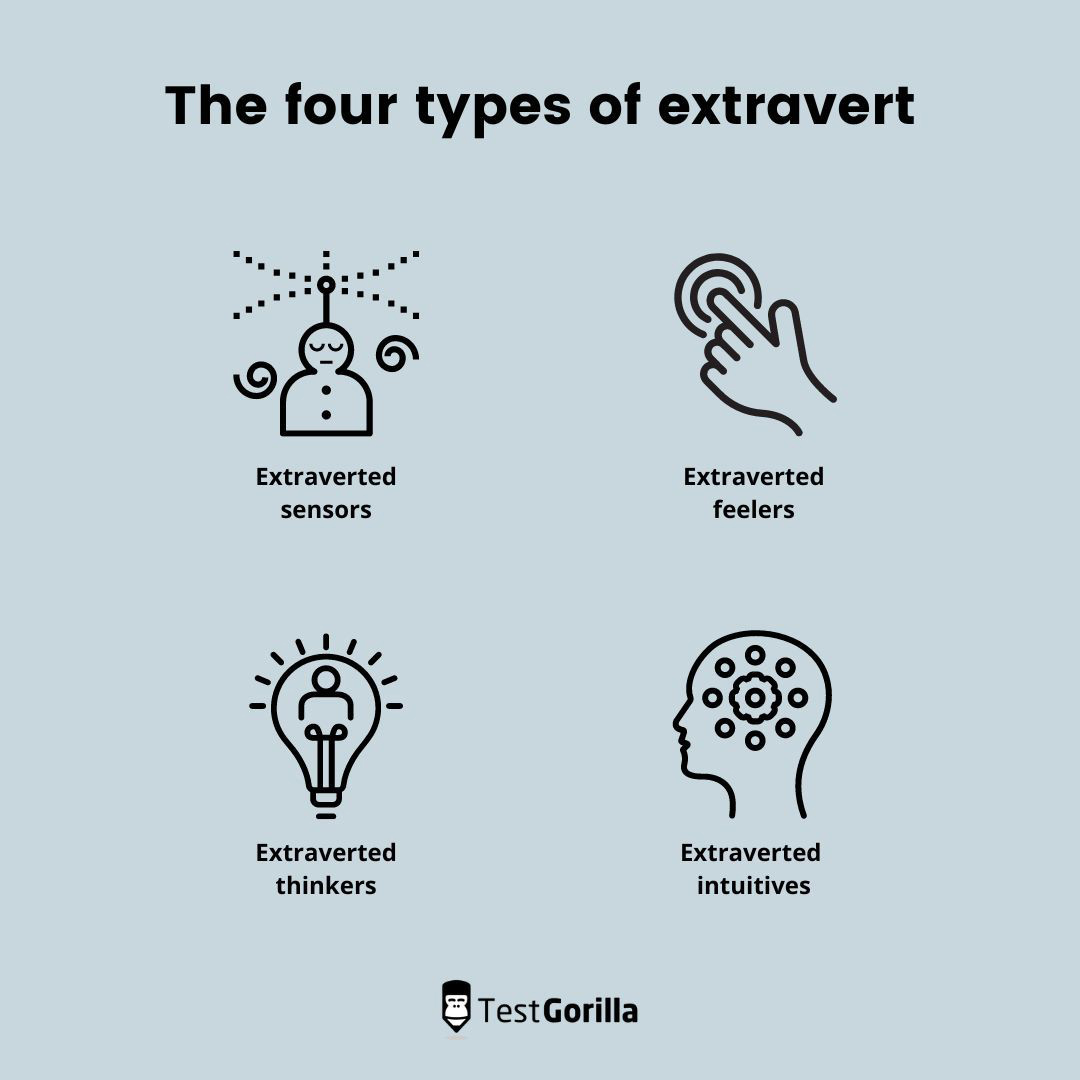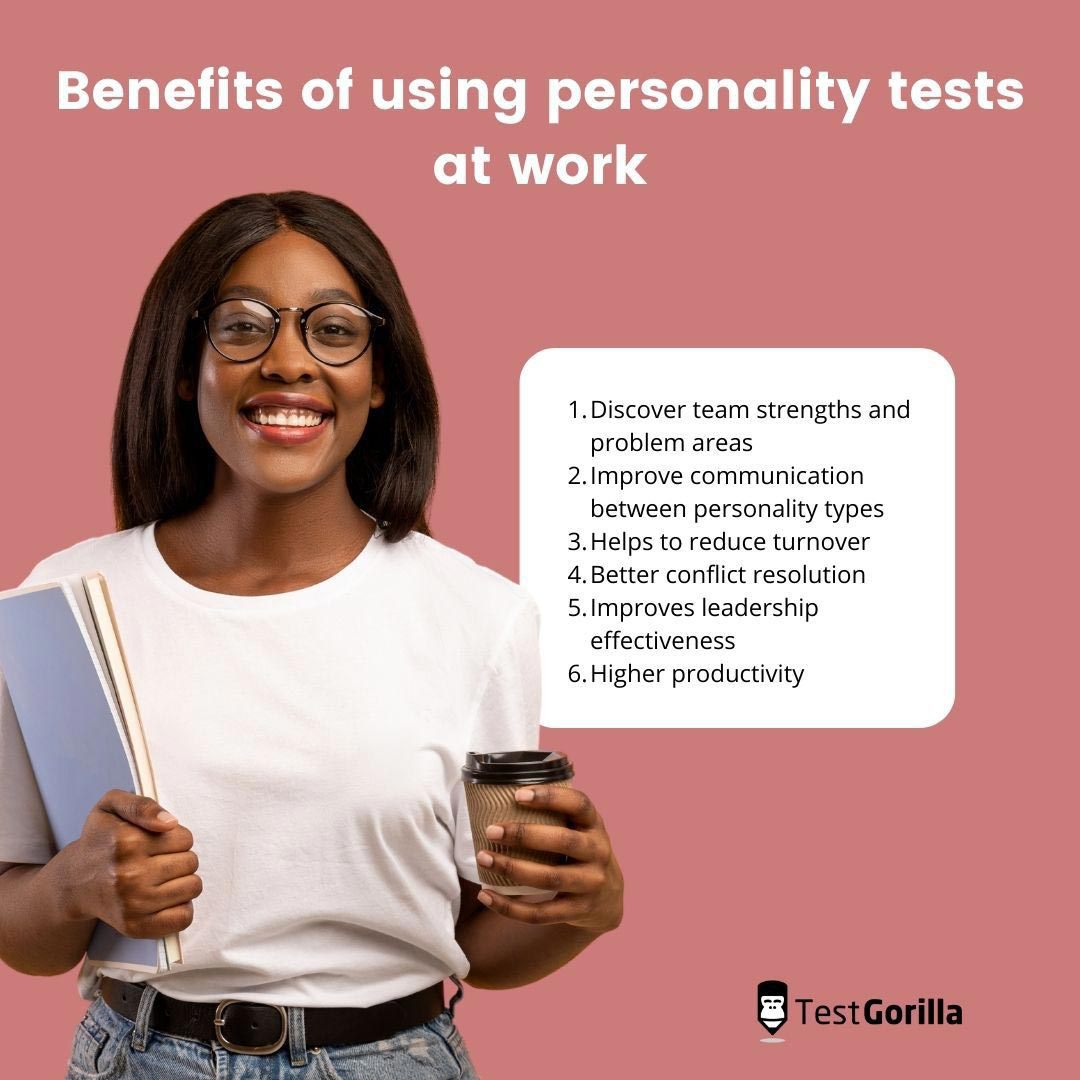Extraverts: what are their strengths and weaknesses in the workplace?
We all know an extravert (also known as an extrovert), but not everybody loves them. Extraverts love being around other people and sharing their thoughts. That’s where they get most of their energy from, whereas introverts recharge their batteries with lots of alone time and solitary activities.
Of course that’s a generalization, as some extraverts enjoy quiet time and some introverts love socializing, but it’s a broad overview of these very different personality types.
We’re going to look at what an extravert is, and their biggest strengths and weaknesses when it comes to the workplace.
This understanding, along with personality testing, will hopefully help you gain more insight into the extraverted employee and assist you in dealing with the varied personalities that make up your teams.
What is an extravert?
Before we look at what the extraverted personality is, let’s clear up the puzzle of the “extrovert vs. extravert” spelling of the term.
The truth is, they both mean exactly the same thing. No one really knows why the original spelling of “extravert” became “extrovert” in popular terminology, but “extravert” is still generally used by psychologists in studies and research papers, while “extrovert” is most often used by everyone else.
Extraverts are (generally) highly social, talkative, and friendly individuals. They are confident, often charming, and love to be the center of attention. Because they need external stimuli, they tend to require social contact to thrive, gaining their energy from group activities and conversations.
This makes them great team players, and many of them have leadership qualities that can be nurtured to make them effective and inspiring leaders.
Extraverts sit at one end of a spectrum, while their polar opposites, the introverts, sit at the other. It’s rare for an individual to have a personality at either of these extremes, and most people fall in the middle with a mixture of the two types (ambiverts).
Why extraverts make great employees
Those with high extraversion traits can excel in the right role.They are generally high-energy, fun, and not afraid to be bold. These individiualsThave several natural talents that can make them a great fit for an organization.
Of course, not all extraverts will have these skills, or they may be tempered by other personality traits, so this is just a general guide.
Communication skills
Extraverts tend to be naturally more comfortable at communicating with other people, especially in conversation.
Communication is one of the most important skills in the workplace, and extraverts are generally good at talking with others and making them feel at ease. They are comfortable at giving feedback (even if it’s not what someone wants to hear), and they usually manage to do so in a way that doesn’t upset the recipient.
This ease of communication is also a great asset when it comes to sales and customer service, as an extravert often has a natural warmth about them that makes people less defensive and more likely to open up.
Our Communication test is a handy way to evaluate a candidate’s skill in this area, and it covers both written and verbal communication, as well as non-verbal cues and active listening.
Wide networks
Those with a high extraversion personality tend to have vast social and workplace networks. These networks often contain useful contacts for businesses, and extraverts often know exactly which colleague to approach for help with a problem, which can reduce blockers and other issues.
Naturally bold
Ok, not all extraverts are naturally bold and confident, but a great deal of them are. This fearlessness can be a bonus in the workplace as they love to put big ideas out there. They can also come up with innovative ways to solve problems. Their solutions may seem crazy and risky at first, but often turn out to be exactly what was needed.
Extraverts are also great at stepping up to a challenge, and are usually good at organizing and leading others.
Not afraid to make suggestions
Again, extraverts generally aren’t scared to speak up, because they aren’t afraid of failure or of being ridiculed. Extraverts love meetings, because they get a chance to bounce ideas off others and make suggestions on how to improve things.
They also aren’t afraid of pointing out mistakes or problems to others who are higher up on the company food chain, or of telling them their opinions on workplace matters.
The best insights on HR and recruitment, delivered to your inbox.
Biweekly updates. No spam. Unsubscribe any time.
…and why they sometimes don’t
Extraversion as a personality trait at work can be great for many reasons, but there are times when highly extraverted employees can be challenging to deal with for coworkers and managers alike.
Everything has a flip side, and some of the issues with extraversion can make a workplace very stressful for some employees. However, there are ways to curb the negative side of high extraversion, it just takes a bit of thought.
Interrupts others
Extraverts love talking and sharing ideas spontaneously with their colleagues. This is great unless you’re a more introverted person who tries to speak up in a meeting only to find no-one is listening because the extravert is talking the loudest and most often.
Introverts often like to be quiet in order to listen and think deeply about things before speaking, and it can feel unnatural to them to share their ideas verbally with a group.
When they do start sharing, often the extravert will interrupt or talk over them because what they are saying has sparked some ideas in the extravert’s head that they can’t wait to share with everyone.
It’s just the way high extraverts are wired, but it can be annoying for introverts to deal with as it seems their contributions are just ignored or that the extravert has hijacked their idea and taken it as their own.
This can cause resentment and misunderstanding among coworkers, so it’s important that everyone has a chance to be listened to in meetings. Sometimes it may be necessary for the meeting host to ask the extravert to give others a chance to speak without interruption, and your extravert may need some extra help with developing active listening skills.
Overconfidence
High extraversion tends to go hand-in-hand with confidence, enthusiasm, and the willingness to take big risks. That’s great when all goes well, but you may find an extravert employee taking on more than they can handle simply because they think they are the best person for the job.
Their natural charisma can sometimes be used to talk people into believing they can handle any risks, and they sometimes have a tendency to overestimate their skills.
Can come across as harsh and aggressive
Those with high extraversion traits can sometimes make others uncomfortable. Because they often say what’s on their mind, more introverted people can feel like the extravert is being aggressive or making a joke out of them in front of others.
Extraverts are generally confident, decisive personalities who like to get to the point, and the risk-averse, indecisive, or quietly thoughtful nature of other colleagues can frustrate them when it’s decision time.
Getting them to recognize different communication styles and ways of working can help them to understand the way more introverted people prefer to work, hopefully reducing any tension between the two personalities.
Likes to be the center of attention
Most of us enjoy positive attention from time to time, but for some highly extraverted people, it is a craving that is never satisfied, however much of it they get.
This can lead them to chase attention in the workplace, always wanting to be the one who excels at everything and who doesn’t make mistakes. Sometimes they don’t like sharing the spotlight with others, which can come across as arrogance or over-competitiveness.
You can curb this trait by ensuring that other team members also get a chance to shine and be praised for their contributions.
Doesn’t like working alone
Very extraverted personalities thrive in a busy office or as part of a close team, where they can bounce their ideas off others and be spontaneous.
Because they get their energy from others, it can affect their happiness if they have to spend long periods of time working alone or in a quiet environment. This can be a real challenge for remote-working extraverts, so extra consideration should be given to creating a better work environment for them, perhaps through coworking video calls,collaborative apps, or by scheduling regular social time with team-building games onZoom or Google Meet.
Personality tests: A useful tool for employers
When someone mentions “personality tests”, do you immediately think of those sketchy free online tests that anyone can take? Personality testing in the HR tech world is light years away from those “tests”, and based on sound psychological systems that have been honed over decades.
We offer a range of personality tests that are popular with recruiters and employers. Our personality tests include :
The Big 5 (OCEAN) test and the 16 Types test (similar to the Myers Briggs Type Indicator) both evaluate extraversion and introversion as part of the test.
Personality tests should never be used to make hiring decisions. Instead, think of them as providing extra insight into a candidate’s or employee’s personality traits. They will give you an indicator of where a candidate or employee sits on the extraversion/introversion spectrum, and this can form part of a discussion with them about their preferred working styles.
Candidates can take our tests online, and each one lasts for around ten minutes. Most people enjoy both doing them and reading the results. You’ll probably enjoy taking our personality tests and learning something about yourself too, so why not sign up for our free-forever plan and try them out?
We hope we gave you plenty of food for thought when it comes to your extraverted employees’ strengths and weaknesses. We have a huge range of tests in our test library (not just personality tests), if you want to browse through the categories.
If you would like to know more about how TestGorilla works, or have any questions, why not set up your free 30-minute live demo with our sales team?
Related posts
You've scrolled this far
Why not try TestGorilla for free, and see what happens when you put skills first.
















